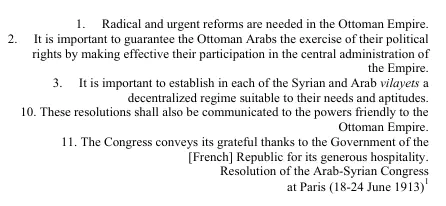Imperial Politics and Feisal's Arab Government in Syria, 1918-1920

Abstract
This paper analyzes the short-lived Arab government formed in Damascus by Feisal under British auspices that had jurisdiction over the smaller Syria that emerged after the severance of some of its integral parts at the end of the First World War. The factors that played a role in the fate of this government were the Arab nationalism that emerged before the First World War; the long-standing French claims to Syria, which the French sought to ensure with the 1914 settlement; the implementation of a British imperial policy in the field by Allenby, of which the first unambiguous instance was the Transjordan raids of early 1918; the struggles of the urban notables against the nationalist supporters of Feisal; the imperial politics carried out by France and Britain; and last, but not least, the highly improvisational nature of British diplomacy of the post-war era.